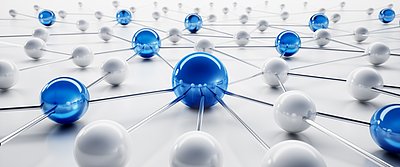The redesign of electricity networks as part of the energy transition requires the expansion of local and regional networks as well as the digitalization of processes based on data.
The data economy is to be understood as a comprehensive economic activity, with the focus on the development of an ecosystem of technologies, platforms and market players. The success of data-driven business models requires the smooth functioning and interaction of every single component in the value chain.
The potential role of distribution system operators in a data economy is not only in implementing network operator-specific solutions, but also as a link in the hybrid area between network and market and by providing data for competitive business models. Due to their central position in the energy transition, distribution system operators have a wealth of data, so they could potentially act as a neutral manager of this data. An ideal future status shows the possible role of the distribution system operator as part of a data platform in the data economy.
There are currently data-based activities in the distribution networks, some of which already use platforms. There are also commercial providers on the market who offer platform solutions for individual companies. While the digitalization of the upper voltage level has already made good progress or has already been implemented, the low-voltage level is still in its early stages in this regard.
Overall, digitalization is an important step towards a more efficient and interoperable energy infrastructure, but requires efforts in terms of data quality, security and standardization. The industry will need to address these challenges in order to make the most of the opportunities presented by a data economy.



![[Translate to English:] Professor Bernd Sörries](/fileadmin/_processed_/c/7/csm_bd1799e9_klein_9e488ded6f.jpg)